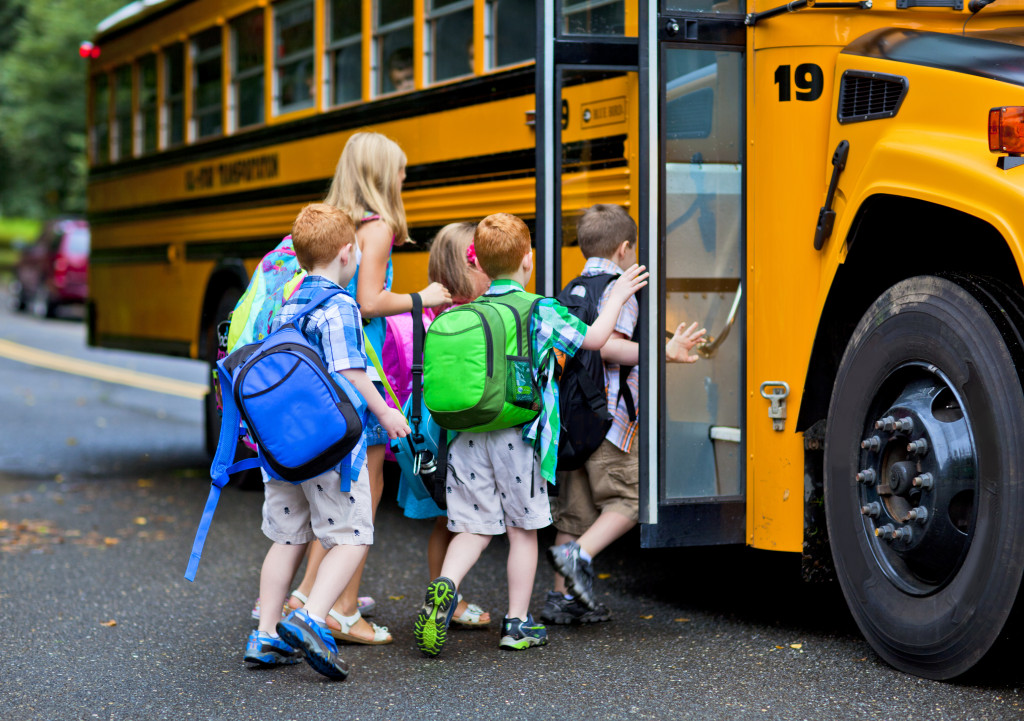- Establish a healthy routine at home to transition kids from summer to the school year, with nutritious breakfasts, adequate sleep, and regular physical activity.
- Conduct necessary health checks, including up-to-date vaccinations, COVID-19 testing, and mental health screenings.
- Foster open communication, encouraging children to express feelings and concerns about school without fear of judgment.
- Set achievable goals for academics and personal growth, and celebrate progress, reinforcing that it outweighs perfection.
It’s that time of year again. Back to school. Preparing your child for the school year can come with a range of emotions – excitement, anxiety, and even dread. To make sure your child is ready to face the school year, it’s crucial to ensure that they are physically and mentally fit. While it may seem like a daunting task, with some careful planning and preparation, you can help set your child up for success. Here are some tips for parents.
Prepare Them At Home:
Making the transition from the idyllic summer days to a stricter school routine can be difficult. To help prepare your child for their return to school, start by getting them back on a healthy and consistent sleep schedule. Here are some easy steps you can start with:
Start with a healthy breakfast.
Everyone knows that breakfast is the most important meal of the day, and that is especially true for kids gearing up for school. A healthy breakfast can fuel your child’s body and brain for the day ahead. Start with slow-release carbohydrates like oatmeal or whole-grain bread, pair it with some protein, like eggs or yogurt, and finish it off with some fresh fruit. Avoid sugary cereals that will cause an energy crash later in the day.
Get plenty of sleep.
Sleep is essential for children’s growth and development, both mentally and physically. Make sure your child gets plenty of rest by establishing a regular bedtime routine, keeping their bedroom dark and cool, and avoiding screens for at least an hour before bed. Children aged 6-13 years need between 9-11 hours of sleep per night, and teenagers need between 8-10 hours of sleep.
Encourage physical activity.
Physical activity is essential not only for physical health but also for mental health. Encourage your child to get at least 60 minutes of physical activity per day. It can be a structured activity like a team sport or a simple activity like walking or cycling to school. Physical activity helps reduce stress, anxiety, and depression and also helps improve concentration and memory.

Conduct Necessary Health Checks:
Before your child goes back to school, it is crucial to make sure they are healthy and up-to-date on all the required health checks. Schedule a checkup with your doctor and discuss any concerns you may have about your child’s health. Here are some routine procedures you should prepare for:
Vaccinations
Ensuring that your child’s vaccinations are up-to-date is an essential part of preparing for the school year. Vaccinations protect against a variety of diseases and are a crucial element of public health, especially in a school environment where children are in close proximity. Check with your pediatrician to see if your child is due for any immunizations, and keep a record for school administration if required.
COVID-19 Testing
As we navigate through the pandemic, COVID-19 testing has become another important aspect of our routine health checks. If your school district requires it, schedule a COVID-19 test for your child before they return to school. Regular testing can help keep the school community safe by identifying infections early and reducing the spread of the virus.
Mental Health Screening
Back to school can be an overwhelming time for children, especially after the disruption of the pandemic. Make sure that your child is prepared mentally by scheduling a mental health screening with their doctor. This will help identify any potential issues and create an individualized plan to best support them through the school year.

Encourage Open Communication
Communication is critical when it comes to mental health. Encourage your child to talk openly about their feelings, worries, and concerns about school. Listen actively and without judgment. Validate their emotions and offer support where needed.
Let them know that it’s okay to ask for help when they need it. Setting realistic goals can also help your child feel more motivated and confident.
Encourage your child to set achievable goals for the school year. They could be academic goals, like improving grades in a specific subject, or personal goals, like making new friends or joining a new club. Celebrate their achievements along the way and remind them that progress is more important than perfection.
Preparing for the school year can be a stressful time for both parents and children, but with some careful planning and preparation, you can help ensure that your child is physically and mentally fit for the challenges ahead. Start with a healthy breakfast, encourage physical activity, and set realistic goals. Above all, facilitate open communication and listen actively without judgment. By working together, you can help your child have a successful and fulfilling school year.






